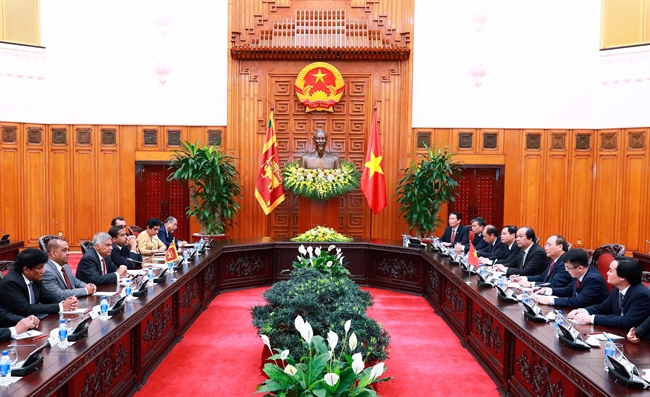Ho Chi Minh, born Nguyen Sinh Cung on May 19, 1890, was the first President of Vietnam. His life and presidency were marked by significant achievements, historical events, and personal struggles.
Background and Ethnicity:
- Ho Chi Minh was born in Nam Dan district, Nghe An province, in central Vietnam.
- He belonged to the Kinh ethnic group, the majority ethnic group in Vietnam.
- His father, Nguyen Sinh Huy, was a scholar and a mandarin in the Nguyen dynasty’s imperial court.
- His mother, Hoang Thi Loan, was a peasant woman.
History and Political Career:
- Ho Chi Minh left Vietnam in 1911 to travel the world, gaining exposure to various political ideologies and working as a seaman, a cook, and a journalist.
- In 1920, he joined the French Communist Party and became an active member of the international communist movement.
- In 1930, Ho Chi Minh founded the Communist Party of Vietnam (CPV), with the goal of achieving independence from French colonial rule.
- He led the CPV through resistance against the French, forming the Viet Minh coalition during World War II.
- After the defeat of the French in 1954, Ho Chi Minh became the President of North Vietnam, while the country was divided along the 17th parallel.
Achievements and Legacy:
- Ho Chi Minh’s leadership led to the unification of Vietnam in 1975, after the end of the Vietnam War.
- He implemented land reforms and social welfare programs, improving the lives of millions of Vietnamese.
- Ho Chi Minh’s foreign policy focused on non-alignment and maintaining friendly relations with both the Eastern and Western blocs.
- He was a skilled orator and writer, using his charisma to rally support for his cause.
- Ho Chi Minh’s legacy is that of a revolutionary leader, a nationalist, and a symbol of Vietnamese independence and unity.
Popular Culture:
- Ho Chi Minh’s image and quotes are widely used in Vietnamese propaganda and art.
- He is fondly remembered as “Uncle Ho” by the Vietnamese people.
- His Mausoleum in Hanoi is a popular tourist attraction and a symbol of Vietnamese patriotism.
- Ho Chi Minh’s life and struggles have been depicted in numerous films, documentaries, and books.

Emblem of Vietnam
To enrich your insights into presidential figures worldwide, also explore some prominent first presidents from other countries, such as Venezuela, Vanuatu and Uzbekistan. Delving into the leadership journeys of these figures can offer valuable perspectives on their historical significance and pivotal roles in shaping global politics.

The official residence and symbol of the Vietnam President
10 Iconic Presidents Who Shaped Vietnam’s History

Here is a list of 10 of the most popular presidents in Vietnam:
- Ho Chi Minh
- Tran Dai Quang
- Le Duc Anh
- Truong Tan Sang
- Nguyen Minh Triet
- Le Quang Vinh
- Le Dai Hanh
- Phan Trong Tue
- Tran Duc Luong
- Tran Van Huong
Ho Chi Minh is one of the most revered and popular presidents in Vietnam. He led the communist revolution and became the first president of the Democratic Republic of Vietnam in 1945. His leadership and dedication to the country’s independence and liberation made him an iconic figure and a symbol of Vietnamese nationalism.
Tran Dai Quang served as the President of Vietnam from 2016 until his death in 2018. He previously held various high-ranking positions in the Vietnamese government, including Minister of Public Security. Quang was known for his tough stance on crime and corruption.
Le Duc Anh was the President of Vietnam from 1992 to 1997. He played a significant role in the Vietnam War as a military general and later became a key figure in post-war politics. Anh was respected for his leadership during a critical time of transition in Vietnam.
Truong Tan Sang served as the President of Vietnam from 2011 to 2016. He prioritized economic reforms and strengthening international relations during his tenure. Sang was known for his pragmatic approach and efforts to improve Vietnam’s global standing.
Nguyen Minh Triet was the President of Vietnam from 2006 to 2011. He focused on economic development and fostering cooperation with other countries. Triet played a crucial role in enhancing Vietnam’s international trade and investment relations.
Le Quang Vinh was the President of Vietnam from 2001 to 2006. His term was marked by efforts to combat corruption and promote transparency in the government. Vinh also worked towards strengthening Vietnam’s position in regional and global affairs.
Le Dai Hanh was an influential figure in Vietnam’s history and served as the Emperor in the early 10th century. He is often regarded as one of the most successful emperors in Vietnamese history due to his military victories and administrative reforms.
Phan Trong Tue served as the President of North Vietnam from 1971 to 1976. He was a key figure during the Vietnam War and played a significant role in the North Vietnamese government. His leadership skills and dedication to the cause made him popular among the Vietnamese people.
Tran Duc Luong served as the President of Vietnam from 1997 to 2006. He was known for his efforts to improve the living standards of the Vietnamese people and promote social welfare. Luong also focused on strengthening diplomatic ties with other nations.
Tran Van Huong served as the President of South Vietnam for a brief period in 1964 before the country underwent political turmoil. He was known for his efforts to reconcile and unite the divided nation during a challenging period in Vietnam’s history.

